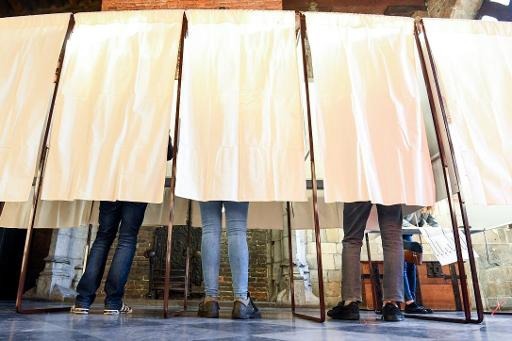Flemish voters will no longer be legally obliged to register to vote in municipal and provincial elections, the Flemish parliament announced today.
The decision follows a proposal by Flemish vice president and minister of Home Affairs, Bart Somers (Open Vld).
Regional, federal and European elections do still require obligatory attendance. Obligatory attendance does not make for an obligation to vote, as citizens are allowed to turn in a blank vote.
“This will be the most extensive change to the functioning of our local democracy in decades,” Somers said, following the decision.
Officially, the suspension means decriminalisation of not showing up for local elections, though in practice the attendance law has rarely led to prosecution. People who chose not to register risked fines of up to €80 in the past.
Flemish voters will no longer be obliged to attend the 2024 elections, following the decision.
“Politicians will first have to convince civilians that voting is important, and only then explain which party they should vote for,” minister Somers said.
“In the future, civilians will vote because they find it important to do so, and not because they are obliged to.”
The Flemish parties first agreed on these plans in November 2019. The reform is part of a larger revision of the Flemish voting system, which will also change how mayors are elected. Any local politician who receives the highest number of votes, will now automatically be elected mayor.
In addition, Flemish mayors may soon be allowed to choose which sash they will wear: one with the colours of the Belgian flag (black, yellow and red), or one resembling the colours of Flanders (black-yellow).
The new voting regulations will also limit possibilities for voting mandates, in which one voter lends their voting power to a representative who will vote in their name. Mandates based on honour (where the representative declares that the voter granted them the mandate) will no longer be allowed. This limitation serves mainly to prevent the ‘recruitment’ of votes in Flemish centres for elderly care.
Lastly, the Flemish government has introduced ‘motions of no confidence’ on a local level, which will help the local government resolve ‘ungovernable’ issues.
Due to low prosecution rates, around 10% to 25% of Flemish voters have chosen to stay home during the elections over the past decade.
Belgium is one of approximately five countries in the world to still have (partial) obligatory attendance laws. Luxembourg, Greece and Thailand maintain the law, as well as North Korea, where not voting may have severe legal consequences.
Last year, following the first proposals for the amendment, Belgian politician Kurt De Loor (SP.A.) warned in Knack that suspending the obligation to vote would be a “bad idea”, saying that “our democracy will only be strong when as many people as possible participate”, and that “a higher-educated elite” would be casting the votes, predominantly.
Amée Zoutberg
The Brussels Times

